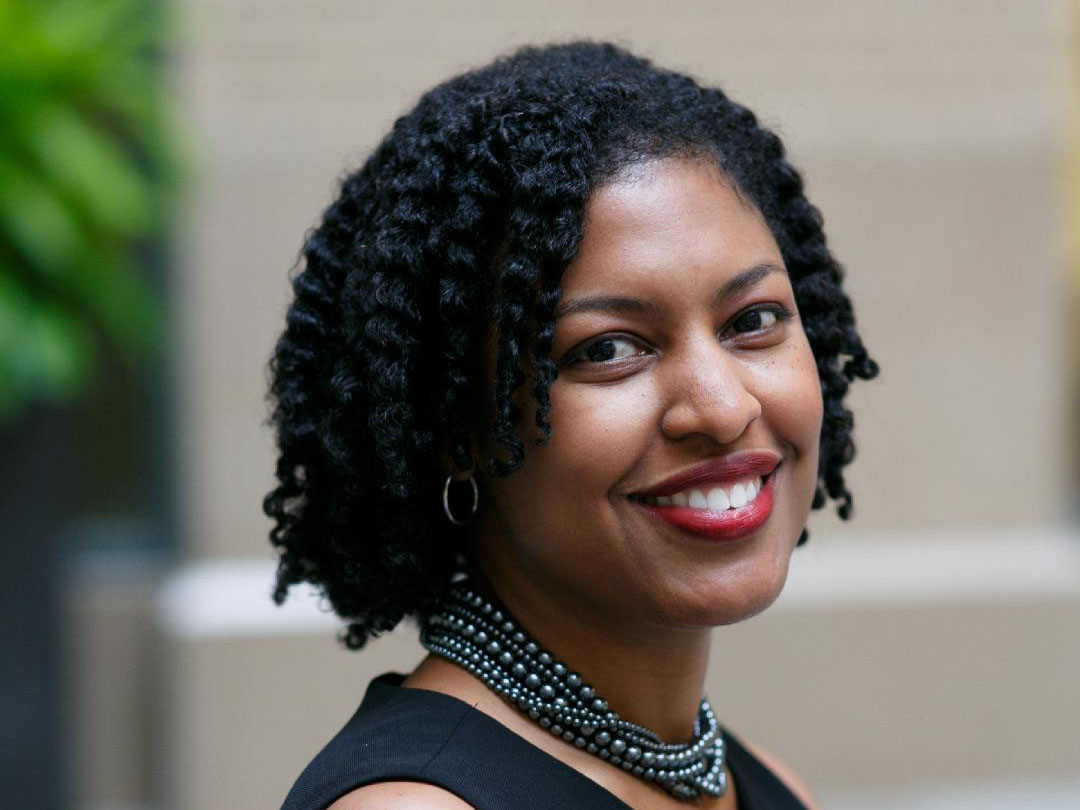
November 20, 2020 Benjamin Franklin Institute of Technology to come to Nubian Square with new CEO Dr. Aisha Francis
Aisha Francis, Ph.D., is the recently-appointed Chief Executive Officer following her role as Benjamin Franklin Institute of Technology Chief of Staff. In her new role, Dr. Francis will lead the college’s senior executive team, overseeing BFIT’s academic, admissions, and administrative departments. Additionally, Dr. Francis and her team will spearhead development efforts for the college’s new campus in Roxbury’s Nubian Square.
What are your main objectives as head of development efforts for the new BFIT campus in Roxbury’s Nubian Square?
We are in the planning phase, which involves looking for co-development partners that will help make the project more robust than what we could facilitate on our own. We are definitely seeking to invest in our students through our move to the Nubian Square community, and retain as much of the proceeds from the sale of the 41 Berkeley Street property as possible. We are being conservative with the spending plan for the build so that a good portion of the proceeds can be reserved for an endowment to provide long-term support for the college and its students. Right now, business partners, the philanthropic community, and the city of Boston and the state have the opportunity to come alongside us to make sure the new facility meets the community and corporate demand for technological training. In addition, we are excited about using the build as an opportunity to develop new models of revenue for post-secondary education. Basically, the feedback we have heard from the community is tremendous eagerness for us to build. We want them to know we are coming and we appreciate their patience as we plan for the smartest development approach possible. eagerness.
What excites you the most about developing the new campus?
We are excited that our plans to build the new campus will embrace accessibility and transparency. Our goal is to bring technical careers and trades into greater relief so that people can see what it means to use advanced manufacturing equipment, and know what it looks like to wire a building. There is often a disconnect between what technical jobs are and the public perception of them. Placing labs on the ground floor of our building, incorporating transparency (i.e. glass) to the extent that we can accommodate that into our designs will help foster a better pipeline into these fields. There’s a saying that “If you can’t see it, you can’t be it.” Building this new campus will allow more people to see the work that often takes place in remote parts of commercial buildings or on job sites that aren’t accessible to the community. Our challenge is to make the areas in which we train more demonstrable so people can see what the labs will look like and envision themselves participating in technical and trade careers. We are building a campus for the next hundred years. Our current 1908 building was certainly cutting edge in the early twentieth century. It’s time to leapfrog into the learning environments of twenty-first century post-secondary education.
What are some of the biggest challenges you see facing the new development? To learning and remote work?
The biggest challenge is the anticipated expense of the build–especially because we’d like to have a sustainable building, which tends to increase upfront costs. we are looking at managing that. There’s the dream, and there’s the process of matching that with the reality of our budget.
You were appointed to the City of Boston’s Employment Commission, which oversees the Boston Residents Job Policy. How does that tie into your vision for the new campus?
The goal of the Boston Employment Commission is to serve as an oversight commission, encouraging compliance to the Boston Residents Jobs Policy, which stipulates that Boston builds of a certain size need to maintain work crews that are comprised of : 51% Boston residents, 40% People of Color, 12% Women. The policy is only as good as compliance and adherence. compliant. Benjamin Franklin Institute of Technology is an institution with a student base that is 75%% people of color many of whom are training to work in the trades. We can help Boston builders fulfill the city’s BRJP goals. We are one of several organizations that encourage construction companies, sub-contractors, business agents, and consultants to turn to us and other community-based training programs when they seek to hire talent that brings them closer to BRJP compliance. Given that half of our students live in Boston, we certainly play a critical role in empowering local workers with economic opportunity.



